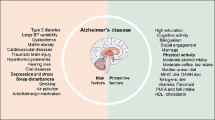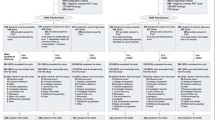Abstract
Time-to-event analysis is frequently used in medical research to investigate potential diseasemodifying treatments in neurodegenerative diseases. Potential treatment effects are generally evaluated using the logrank test, which has optimal power and sensitivity when the treatment effect (hazard ratio) is constant over time. However, there is generally no prior information as to how the hazard ratio for the event of interest actually evolves. In these cases, the logrank test is not necessarily the most appropriate to use. When the hazard ratio is expected to decrease or increase over time, alternative statistical tests such as the Fleming-Harrington test, provide a better sensitivity. An example of this comes from a large, five-year randomised, placebo-controlled prevention trial (GuidAge) in 2854 community-based subjects making spontaneous memory complaints to their family physicians, which evaluated whether treatment with EGb761® can modify the risk of developing AD. The primary outcome measure was the time to conversion from memory complaint to Alzheimer’s type dementia. Although there was no significant difference in the hazard function of conversion between the two treatment groups according to the preplanned logrank test, a significant treatment-by-time interaction for the incidence of AD was observed in a protocol-specified subgroup analysis, suggesting that the hazard ratio is not constant over time. For this reason, additional post hoc analyses were performed using the Fleming-Harrington test to evaluate whether there was a signal of a late effect of EGb761®. Applying the Fleming-Harrington test, the hazard function for conversion to dementia in the placebo group was significantly different from that in the EGb761® treatment group (p = 0.0054), suggesting a late effect of EGb761®. Since this was a post hoc analysis, no definitive conclusions can be drawn as to the effectiveness of the treatment. This post hoc analysis illustrates the interest of performing another randomised clinical trial of EGb761® explicitly testing the hypothesis of a late treatment effect, as well as of using of better adapted statistical approaches for long term preventive trials when it is expected that prevention cannot have an immediate effect but rather a delayed effect that increases over time.
Similar content being viewed by others
References
Miller RG, Munsat TL, Swash M, Brooks BR. Consensus guidelines for the design and implementation of clinical trials in ALS. World Federation of Neurology committee on Research. J Neurol Sci 1999;169:2–12.
Lacomblez L, Bensimon G, Leigh PN, Guillet P, Meininger V. Dose-ranging study of riluzole in amyotrophic lateral sclerosis. Amyotrophic Lateral Sclerosis/Riluzole Study Group II. Lancet 1996;347:1425–1431.
Connolly BS, Lang AE. Pharmacological treatment of Parkinson disease: a review. Jama 2014;311:1670–1683.
Dodge HH, Zitzelberger T, Oken BS, Howieson D, Kaye J. A randomized placebocontrolled trial of Ginkgo biloba for the prevention of cognitive decline. Neurology 2008;70:1809–1817.
Shumaker SA, Legault C, Kuller L, Rapp SR, Thal L, et al. Conjugated equine estrogens and incidence of probable dementia and mild cognitive impairment in postmenopausal women: Women’s Health Initiative Memory Study. Jama 2004;291:2947–2958.
Lyketsos CG, Breitner JC, Green RC, Martin BK, Meinert C, et al. Naproxen and celecoxib do not prevent AD in early results from a randomized controlled trial. Neurology 2007;68:1800–1808.
Garès V, Andrieu S, Dupuy JF, Savy N (in press) On the use of Fleming- Harrington’s test in prevention trials. Biometrika.
Wang BS, Wang H, Song YY, Qi H, Rong ZX, et al. Effectiveness of standardized ginkgo biloba extract on cognitive symptoms of dementia with a six-month treatment: a bivariate random effect meta-analysis. Pharmacopsychiatry 2010;43: 86–g.
Weinmann S, Roll S, Schwarzbach C, Vauth C, Willich SN. Effects of Ginkgo biloba in dementia: systematic review and meta-analysis. BMC Geriatr 2010;0: 14.
Yang Z, Li WJ, Huang T, Chen JM, Zhang X. Meta-analysis of Ginkgo biloba extract for the treatment of Alzheimer’s disease. Neural Regen Res 2011;6: 1125–1129.
Janssen IM, Sturtz S, Skipka G, Zentner A, Velasco Garrido M, et al. Ginkgo biloba in Alzheimer’s disease: a systematic review. Wien Med Wochenschr 2011;160: 539–546.
Grassel E. [Effect of Ginkgo-biloba extract on mental performance. Doubleblind study using computerized measurement conditions in patients with cerebral insufficiency]. Fortschr Med 1992;110:73–76.
Grass-Kapanke B, Busmane A, Lasmanis A, Hoerr R, Kaschel R. Effects of Ginkgo Biloba special extract EGb 761® in very mild cognitive impairment (vMCI). Neuroscience & Medicine 2011;2:48–56.
Andrieu S, Gillette S, Amouyal K, Nourhashemi F, Reynish E, et al. Association of Alzheimer’s disease onset with ginkgo biloba and other symptomatic cognitive treatments in a population of women aged 75 years and older from the EPIDOS study. J Gerontol A Biol Sci Med Sci 2003;58:372–377.
Amieva H, Meillon C, Helmer C, Barberger-Gateau P, Dartigues JF. Ginkgo biloba extract and long-term cognitive decline: a 20-year follow-up population-based study. Plos One 2013;8: e52755.
Vellas B, Coley N, Ousset PJ, Berrut G, Dartigues JF, et al. Long-term use of standardised ginkgo biloba extract for the prevention of Alzheimer’s disease (GuidAge): a randomised placebo-controlled trial. Lancet Neurol 2012;11:851–859.
Vellas B, Andrieu S, Ousset PJ, Ouzid M, Mathiex-Fortunet H. The GuidAge study: methodological issues. A 5-year double-blind randomized trial of the efficacy of EGb 761 for prevention of Alzheimer disease in patients over 70 with a memory complaint. Neurology 2006;67: S6–11.
American Psychiatric Association. Diagnostic and Statistical Manual for Mental Disorders. Washington DC, USA: American Psychiatric Association, 1994.
McKhann G, Drachman D, Folstein M, Katzman R, Price D, et al. Clinical diagnosis of Alzheimer’s disease: report of the NINCDS-ADRDA Work Group under the auspices of Department of Health and Human Services Task Force on Alzheimer’s Disease. Neurology 1984;34:939–944.
Alzheimer’s Disease International. World Alzheimer Report, 2009.
Doraiswamy PM, Xiong GL. Pharmacological strategies for the prevention of Alzheimer’s disease. Expert Opin Pharmacother 2006;7:1–10.
Williams JW, Plassman BL, Burke J, Benjamin S. Preventing Alzheimer’s disease and cognitive decline. Evid Rep Technol Assess (Full Rep): 2010;1–727.
Garès V, Andrieu S, Dupuy J-F, Savy N. A comparison of the constant piecewise weighted logrank and Fleming-Harrington tests. Electronic J Stat 2015;8:841–860.
Gares V, Andrieu S, Dupuy JF, Savy N.An omnibus test for several hazard alternatives in prevention randomized controlled clinical trials. Stat Med 2015;34:541–557.
Author information
Authors and Affiliations
Consortia
Corresponding author
Rights and permissions
About this article
Cite this article
Scherrer, B., Andrieu, S., Ousset, PJ. et al. Analysing time to event data in dementia prevention trials: The example of the guidage study of EGB761®. J Nutr Health Aging 19, 1009–1011 (2015). https://doi.org/10.1007/s12603-015-0661-2
Received:
Accepted:
Published:
Issue Date:
DOI: https://doi.org/10.1007/s12603-015-0661-2




